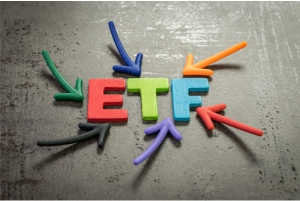If the benchmark index is going up and generating returns but your investment portfolio simply can’t seem to catch up, then wouldn’t it be better to simply invest in the index? As an investor you can either invest in an actively managed portfolio in which the fund manager is constantly trying to beat index or benchmark returns, or you can simply take the passive approach and opt for index investing. This brings us to the important question, ‘what is index investing’. Index investing is simply a passive investment strategy in which the fund manager seeks to replicate the returns generated by the underlying benchmark index. It’s as simple as that. Now that you know what is index investing, lets see how you can go about adopting this approach and whether it is suitable for you as a long-term investor. A great way to invest in the benchmark index is to invest via Exchange Traded Funds or ETF mutual funds.
How ETF funds work?
ETF mutual fund is simply an investment portfolio that consists of an assortment of securities that follow the movement of its chosen index. Further, the units of ETF mutual funds are listed on the stock exchanges and thus, they can be bought and sold in the same manner as stocks. Now, lets see how ETF funds work.
ETF mutual funds hold the same securities as the underlying benchmark index and that too in the same proportion. This way, if the underlying benchmark goes up then the value of the ETF mutual fund will go up in more or less the same proportion, and if the value of the benchmark falls, then the ETF mutual fund will approximately lose the same amount of value. Take for example a Nifty ETF. Such an ETF mutual fund will invest in all the constituents of the Nifty 50 index and in the same proportion. As a result, the fund will mirror the movements of the benchmark Index Nifty 50. If the Nifty 50 goes up, the Nifty ETF will also go up and if the Nifty 50 goes down, the Nifty ETF will go down. Further, the extent of gains or losses on the Nifty ETF will also be more or less the same as the Nifty 50 Index. It is not the exact returns simply because there is always a bit of tracking error that can be attributed to expenses incurred by the ETF mutual fund.
Are ETF funds good for long-term?
An ETF mutual fund can be a great investment vehicle for both beginners as well as seasoned investors. For beginners, it is an easy and relatively less risky way of gaining equity market exposure. For seasoned investors, it is a great opportunity to diversify their investment portfolio. Additionally, ETF mutual funds are low cost in nature, liquid, and transparent. These attributes also make them an ideal option for investors who have a long-term investment time horizon. They can simply purchase the ETF mutual fund and hold it for the long-term and participate in the growth potential of equities.
Every investment option has some unique features which might be perfect for one investor but might not work at all for another investor. Thus, it is important for you to not only understand the nuances of a particular investment but also evaluate whether it will help you meet your financial goals.
An investor education initiative by Edelweiss Mutual Fund
All Mutual Fund Investors have to go through a onetime KYC process. Investor should deal only with Registered Mutual Fund (RMF). For more info on KYC, RMF and procedure to lodge/redress any complaints, visit -https://www.edelweissmf.com/kyc-norms
MUTUAL FUND INVESTMENTS ARE SUBJECT TO MARKET RISKS, READ ALL SCHEME RELATED DOCUMENTS CAREFULLY
Trending Articles
MUTUAL FUND INVESTMENTS ARE SUBJECT TO MARKET RISKS, READ ALL SCHEME RELATED DOCUMENTS CAREFULLY.




















